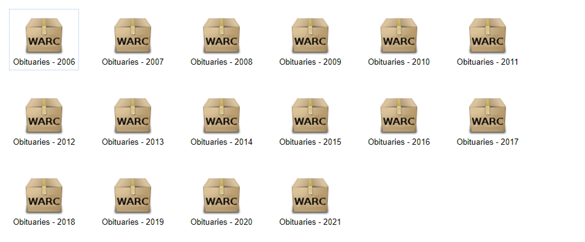Emma Hancox, Digital Archivist, working in Special Collections and Theatre Collection, shares what she learnt at the Digital Preservation Coalition’s Unconference event in May.
In May I attended the Digital Preservation Coalition’s annual Unconference and Networking Event. The Digital Preservation Coalition or DPC is a membership organisation for institutions involved in digital preservation activities. Its vision is to build ‘a welcoming and inclusive global community, working together to bring about a sustainable future for our digital assets.’ My role at the University of Bristol is Digital Archivist and I was excited to attend this event as it was the perfect opportunity for me to meet others in similar positions from a variety of institutions in Europe, the UK and the US. The venue this year was the beautiful Royal Irish Academy, an historic building in the centre of Dublin. Its meeting room was lined with books and it was a grand setting for the events of the unconference which were spread over two days.

Digital Preservation Coalition Unconference and Networking Event 2024, Royal Irish Academy, Dublin.
The unconference had a strong focus on opportunities to network, share information and have conversations with others. This is particularly important to practitioners in the digital field as they are often the only member of staff working on digital preservation in their institution and there may not be any other Digital Archivists working in their local area. I am fortunate that we have two Digital Archive Assistants at the University of Bristol but it is still invaluable for me to be able to meet other Digital Archivists. The programme for the event was driven by members hence the ‘unconference’ name. As well as proposing talks in the run up to the event, we were able to suggest and vote on topics for discussion on the day. The winning areas were cloud storage, procurement of digital preservation systems, advocacy for digital preservation and lastly artificial intelligence which was no surprise due to its popularity as a topical issue!
One of the highlights of the event for me was going to the DPC’s reading club for the first time. Whilst I have attended reading groups outside of work, a reading group based on professional literature was new to me. This was the first in-person reading club as it is normally held online. The topic of the session was an article called ‘Toward a Conceptual Framework for Technical Debt in Archives’. ‘Technical debt’ is a term borrowed from commercial software development. It is a metaphor for future costs and work which are necessary because of compromises that were made (either intentionally or unintentionally) when setting up a system or project. Technical debt applies to digital archives work where there is often a legacy of early collections-based projects and infrastructure which are time intensive and resource heavy to maintain in the future and compete with the many other tasks archivists are faced with in their day-to-day jobs. The article proposed a model to assess past digital projects through an understanding of technical debt to make better decisions in the future. I found the article a useful starting point for evaluating the status of legacy projects and it gave me a framework I will use when analysing past projects that are presented to me. I enjoyed the discussion around how the article could be expanded to include case studies relating to born-digital rather than just digitised material. I plan to attend more of the DPC’s reading groups in the future online as they are a useful driver for engaging with professional literature.
Other talks I attended included one on fixity file checking in the cloud by Gen Schmitt from the University of Illinois. File fixity checking allows archivists to verify that files in their care have not become damaged or corrupted over time. The talk discussed performing fixities at scale across a whole repository of content and it was interesting to hear how the cost and efficiency of the process had been balanced. There was also a useful discussion around appraisal of born-digital collections led by Nicola Caldwell from the National Library of New Zealand. Appraisal in the digital realm is a very challenging area due to the sheer volume of digital files produced. It was encouraging to hear about tools that could help to make this piece of work easier such as Brunnhilde and the full version of FTK Imager. We are also grappling with challenges around how to appraise born-digital files at Bristol and because of the information gained from this session we will certainly look at these two tools as part of our future research and testing.
Professional visits were another part of the unconference and I was lucky to get a place on a tour of the Irish Traditional Music Archive. Housed in the Georgian Merrion Square the archive collects everything to do with Irish traditional music and has a fascinating and wide-ranging collection. After a tour of their digitisation and recording studios we learnt about their collections and how they provide a service to the public. As expected, the ITMA staff spend a lot of time clearing rights in their collections to be able to make them accessible. If you are ever in Dublin a visit is highly recommended.
I’m very grateful to have had the opportunity to attend this year’s unconference. It was a fantastic opportunity to make new connections and I plan to integrate what I learnt about dealing with legacy projects, fixity checking in the cloud and digital appraisal in my own role at the University of Bristol.


